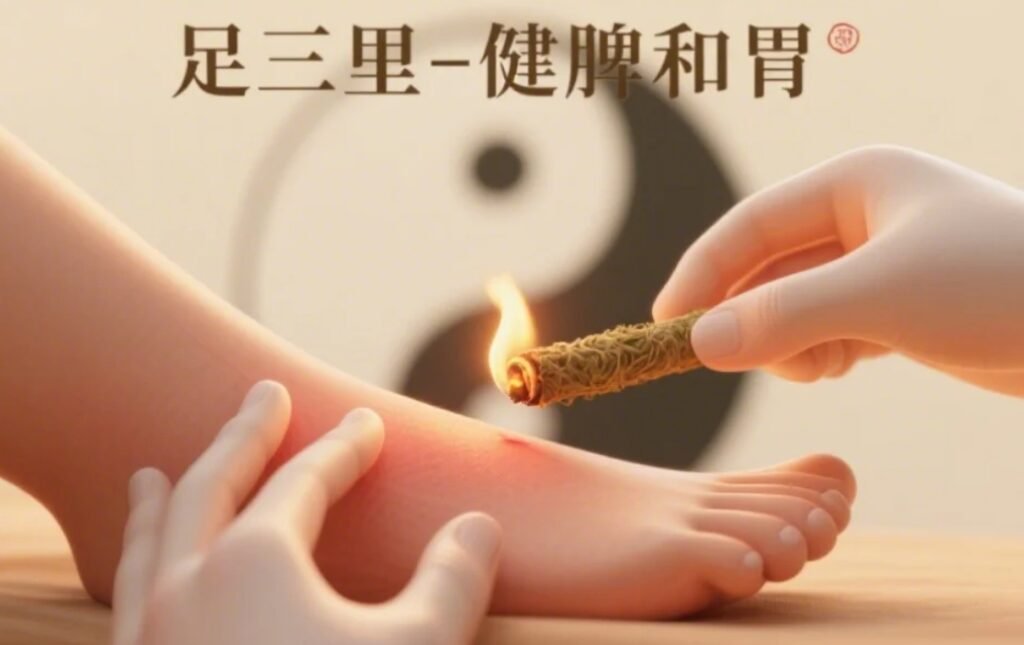Padaimongqu (Pregnancy-Related Abdominal Pain)
In Miao medicine, pregnancy-related abdominal pain is referred to as Padaimongqu, also known as Padaidongmengbai. Padaimongqu arises when a pregnant woman’s body becomes weak, leading to a deficiency of both qi and blood, causing poor blood circulation. Over time, this results in qi stagnation and blood stasis. During pregnancy, the consumption of qi and blood increases significantly, and the insufficiency of blood supply within the uterus leads to abdominal pain as a primary manifestation.
In Traditional Chinese Medicine (TCM), pregnancy-related abdominal pain is classified under conditions caused by obstruction or malnourishment of the uterine vessels, commonly called “pregnancy abdominal pain” or “uterine obstruction.”
From a Western medical perspective, this condition is considered one of the warning signs of a potential miscarriage.
Huhoujipeng·Miao Medicine Disease Classification
Pregnancy abdominal pain is regarded as a minor disorder and is divided into two types: cold-induced abdominal pain and heat-induced abdominal pain during pregnancy.
Aiduojiang·Causes
Miao medicine attributes the cause of this condition primarily to physical weakness and deficiency of both qi and blood. Qi and blood originate from the same source: qi propels the blood throughout the body. If the body is inherently weak and qi is deficient, blood circulation becomes sluggish. Over time, this leads to qi stagnation and blood stasis. During pregnancy, the consumption of qi and blood increases further, and a deficiency of uterine blood supply can trigger abdominal pain.
Gengduomeng·Pathogenesis
This disorder is caused by a weak constitution and insufficiency of qi and blood. Qi propels the blood throughout the body. When the body is frail and qi is deficient, blood circulation slows, eventually leading to qi stagnation and blood stasis. Common symptoms among pregnant women include lower abdominal pain, dizziness, blurred vision, palpitations, yellowish complexion, cold limbs, and poor appetite.

Key Points for Diagnosis
Diagnostic Basis
Medical History: History of missed menstruation and early pregnancy symptoms.
Clinical Manifestations: Lower abdominal pain during pregnancy, typically characterized by mild, persistent discomfort, cold pain, or a dull ache. Some patients may experience pain radiating to the flanks.
Related Examinations
Gynecological Examination: Detection of a gravid uterus, soft and non-resistant abdomen, pain relief with warmth.
Auxiliary Tests: Positive urine pregnancy test. Ultrasound indicating intrauterine pregnancy with a viable fetus.
Differential Diagnosis
Gaaoyemeng (Women’s Abdominal Pain)
Both Gaaoyemeng and Padaimongqu primarily feature abdominal pain. However, Gaaoyemeng is usually triggered by poor hygiene during menstruation or improper postpartum care. Its pathogenesis involves the invasion of external pathogenic factors such as wind, dampness, heat, and toxins, which damage qi, water metabolism, and blood, leading to qi stagnation and blood stasis, eventually transforming into heat and damaging the meridians. In contrast, Padaimongqu stems from a weak constitution and deficiency of qi and blood, where qi deficiency results in poor blood circulation, leading over time to qi stagnation and blood stasis, with increased consumption of qi and blood during pregnancy resulting in abdominal pain due to uterine ischemia.
Syndrome Differentiation and Treatment
Cold-Induced Pregnancy Abdominal Pain
Clinical Manifestations: Persistent lower abdominal pain after conception, accompanied by dizziness, blurred vision, palpitations, yellowish complexion, cold limbs, poor appetite, and loose stools.
Pathogenesis: Cold syndrome affecting cold meridians.
Treatment Principles: Nourish the blood (yixiang), stabilize the pregnancy (dang’ang), and relieve pain (dangmeng).
Prescription and Explanation:
Angelica sinensis, dang gui (15g)
Saposhnikovia divaricata, fang feng (15g)
Paeonia lactiflora, bai shao (12g)
Taxillus chinensis, sang ji sheng (12g)
Liquidambar orientalis fruit, lu lu tong (15g)
Decoction method: boil in water and take orally.
Angelica sinensis, dang gui: Hot in nature, pungent and sweet in taste, enters cold meridians, replenishes blood.
Saposhnikovia divaricata, fang feng: Slightly warm, pungent and sweet, enters cold meridians, expels wind and nourishes blood.
Paeonia lactiflora, bai shao: Cold in nature, bitter in taste, enters hot meridians, nourishes blood, soothes the liver, and relieves pain.
Taxillus chinensis, sang ji sheng: Hot in nature, sweet in taste, enters cold meridians, nourishes blood, and strengthens liver and kidney functions.
Liquidambar orientalis fruit, lu lu tong: Cold in nature, bitter in taste, enters hot meridians, relieves pain.
Heat-Induced Pregnancy Abdominal Pain
Clinical Manifestations: Frequent dull pain or stabbing or distending pain in the lower abdomen, foul-smelling flatulence, acid regurgitation, irritability, thirst, and heat in the palms and soles.
Pathogenesis: Heat syndrome affecting hot meridians.
Treatment Principles: Nourish the liver and kidney (hanwushanbudiu) and replenish qi and blood (buyixiang).
Prescription and Explanation:
Bupleurum chinense, chai hu (15g)
Curcuma aromatica, yu jin (10g)
Perilla stem, su geng (12g)
Melia azedarach fruit, ku lian zi (10g)
Gardenia jasminoides tea, shan zhi cha (10g)
Decoction method: boil in water and take orally.
Bupleurum chinense, chai hu: Hot in nature, bitter and astringent, enters cold meridians, soothes the liver and regulates qi.
Curcuma aromatica, yu jin: Cold in nature, bitter and slightly pungent, enters hot meridians, promotes qi circulation, relieves depression, and alleviates pain.
Perilla stem, su geng: Hot in nature, pungent in taste, regulates qi, harmonizes the middle, alleviates pain, and stabilizes pregnancy.
Gardenia jasminoides seed, zi: Cold in nature, bitter in taste, enters hot meridians, calms the liver and clears internal heat.
Melia azedarach fruit, ku lian zi: Cold in nature, bitter and astringent, slightly toxic, enters hot meridians, regulates qi, and relieves pain.
Gardenia jasminoides tea, shan zhi cha: Cold in nature, bitter and pungent, enters hot meridians, calms and soothes the mind.
Preventive Care
Maintain a balance between work and rest, keep a positive mood, and improve nutrition.
Avoid sexual activity and prioritize rest.
If the abdominal pain becomes severe and intolerable, seek medical evaluation promptly.
Notes
Miao medicine believes that the causes of this condition include both internal and external factors, primarily categorized into cold-induced and heat-induced pregnancy abdominal pain. The fundamental cause is a weak constitution and insufficiency of qi and blood. When the body is chronically weak, qi becomes incapable of propelling the blood, leading to stagnation and stasis over time. During pregnancy, these issues are exacerbated, causing symptoms such as lower abdominal pain, dizziness, palpitations, yellowish complexion, cold extremities, and poor appetite. The core (used in traditional contexts) strategy focuses on relieving pain and stabilizing the pregnancy.


Leave a Reply